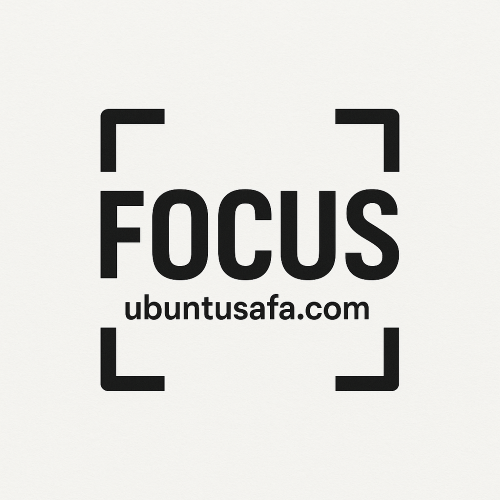What lessons were learned from the #EndSARS protests?

The #EndSARS protests in Nigeria in October 2020 were a watershed moment, revealing deep-seated grievances and offering critical lessons for both the Nigerian government and its citizens.
While the immediate outcome of ending SARS was announced, many of the underlying issues persist, and the tragic Lekki Toll Gate shooting underscored the government's harsh response.
Here are the key lessons learned from the #EndSARS protests:
For the Nigerian Youth and Civil Society:
-
The Power of Unity and Decentralized Mobilization:
-
Unity Across Divides: The protests demonstrated unprecedented unity among Nigerian youth, transcending ethnic, religious, and class lines. This collective voice amplified their demands and put immense pressure on the government.
-
Leaderless Movement: The decentralized, leaderless nature of the protests, primarily coordinated through social media, made it difficult for the government to identify and co-opt or silence specific individuals. It showed that collective action can be powerful even without a traditional leadership structure.
-
Effective Use of Social Media: Social media platforms (Twitter, Instagram, WhatsApp) were instrumental in organizing, mobilizing, fundraising, disseminating information, and garnering international support. It was a testament to the "Soro Soke" (speak loudly) generation's ability to leverage digital tools for social change.
-
-
Transparency and Accountability Builds Trust:
-
The Feminist Coalition, a key group that provided support to protesters, garnered immense trust by publicly and transparently accounting for all funds received and disbursed. This stood in stark contrast to the perceived opacity of government finances and highlighted the importance of financial integrity in public movements.
-
-
The Need for Sustained Advocacy and Long-Term Strategy:
-
While the initial demand to end SARS was met, the protests evolved into broader calls for good governance and systemic reform. This showed that addressing surface-level issues without tackling root causes (police brutality, corruption, impunity, unemployment, bad governance) would lead to recurring discontent.
-
The eventual violent crackdown demonstrated the government's reluctance to engage constructively and the need for protesters to anticipate and strategize for such responses.
-
-
The Importance of Practical Organization:
-
Volunteer groups showed incredible organizational prowess in providing food, medical aid, legal support, and even security for protesters, mirroring elements of good governance that were often absent in official structures.
-
-
Youth as Agents of Change:
-
The protests firmly established Nigerian youth as active political actors, capable of organizing and demanding accountability, dispelling the stereotype of them as apathetic or only interested in entertainment. It underscored that they are "leaders of today," not just tomorrow.
-
For the Nigerian Government and Institutions:
-
Underestimation of Youth Discontent:
-
The government initially underestimated the depth and breadth of public (especially youth) anger, believing the protests would fizzle out or could be dismissed. The sustained nature and widespread support caught them off guard.
-
The protests were not just about police brutality but a manifestation of broader frustrations with bad governance, corruption, unemployment, and a general lack of opportunities.
-
-
The Perils of a High-Handed Response:
-
The use of disproportionate force, particularly the Lekki Toll Gate shooting, backfired severely, drawing international condemnation and further eroding public trust. It transformed a peaceful protest into a tragedy and fueled a narrative of government oppression.
-
Attempts to deny, cover up, or downplay the Lekki events, and to harass protest leaders (e.g., freezing bank accounts, fining media houses), only exacerbated public anger and confirmed long-held suspicions about government intentions.
-
-
Lack of Genuine Reform is Unsustainable:
-
The disbandment of SARS was the fifth such announcement since 2017, highlighting a pattern of superficial promises without concrete, lasting reforms. This cyclical pattern of broken promises led to the intense skepticism and continued protests even after SARS was "disbanded" again.
-
The immediate replacement of SARS with SWAT was seen as a mere rebranding, further eroding credibility.
-
-
The Global Reach of Digital Activism:
-
Social media ensured that the protests gained significant international attention, putting diplomatic pressure on the Nigerian government and preventing it from easily dismissing the events as purely internal affairs.
-
-
Need for Transformative Police Reform:
-
The protests unequivocally highlighted the urgent need for comprehensive police reform that goes beyond disbanding units. This includes re-training, psychological evaluation, improved welfare, accountability mechanisms, and a fundamental shift from an oppressive force to a service-oriented one.
-
-
Importance of Dialogue and Empathy:
-
The government's initial failure to engage genuinely with protesters and the President's perceived lack of empathy fueled the escalation of the movement. It demonstrated that dismissing citizens' concerns can lead to widespread social unrest.
-
In conclusion, #EndSARS served as a stark reminder of the power of a united citizenry, particularly youth, when mobilized through modern tools. It also exposed the severe trust deficit between the Nigerian state and its people, largely due to a history of impunity, corruption, and a persistent unwillingness by the government to genuinely address systemic issues and engage with citizens' demands in a democratic manner.
- Questions and Answers
- Opinion
- Motivational and Inspiring Story
- Technology
- Live and Let live
- Focus
- Geopolitics
- Military-Arms/Equipment
- Security
- Economy
- Beasts of Nations
- Machine Tools-The “Mother Industry”
- Art
- Causes
- Crafts
- Dance
- Drinks
- Film/Movie
- Fitness
- Food
- Games
- Gardening
- Health
- Home
- Literature
- Music
- Networking
- Other
- Party
- Religion
- Shopping
- Sports
- Theater
- Health and Wellness
- News
- Culture

